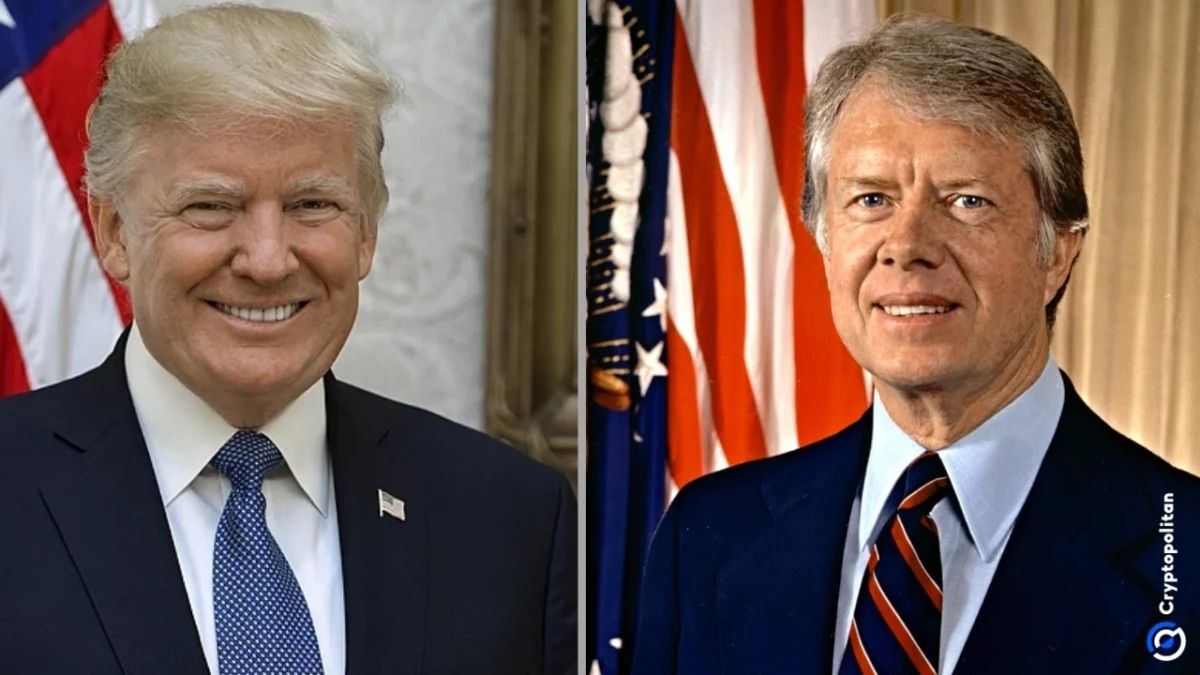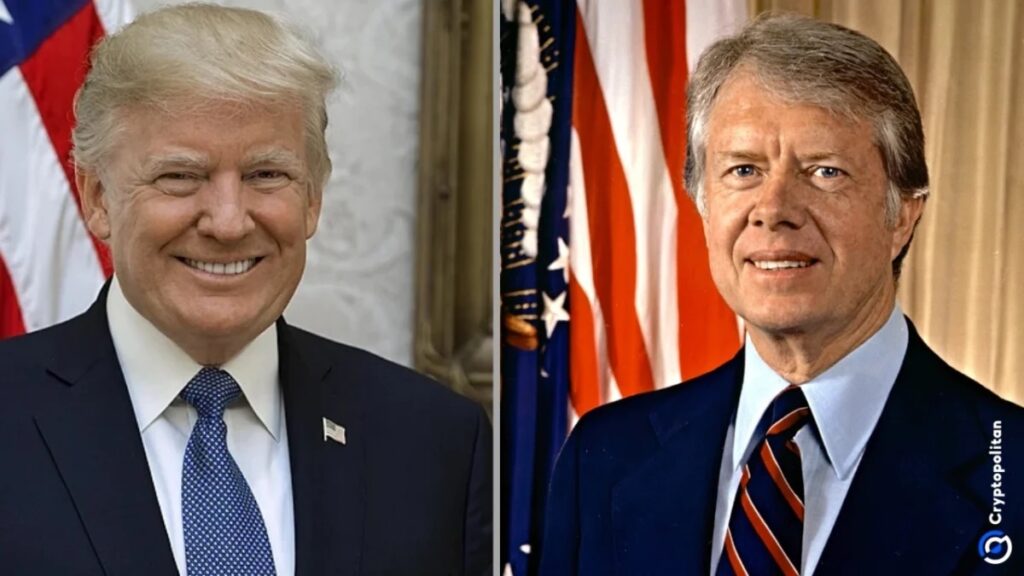
Jimmy Carter, who led the US during ‘stagflation,’ dies at 100 – Can Donald Trump live up to his economic policies?
Former President Jimmy Carter passed away on Sunday at his home in Plains, Georgia, at the age of 100. Carter, who served as the 39th president of the United States from 1977 to 1981, holds the record for the longest-lived president in American history.
President-elect Donald Trump called him a good person but a “terrible president,” and we probably have a good idea why. Will Trump’s second-chance administration outpace who many call the most “humble and devoted” commander-in-chief in US history?
Probably yes, maybe not.
A presidency that battled stagflation with a humanitarian vision
Jimmy Carter assumed office at a time when the US economy grappled with “stagflation,” a term coined to describe the unusual combination of high inflation and stagnant economic growth. For average Americans, this economic malaise meant skyrocketing prices for essential goods like groceries and gas while wages failed to keep pace.
Families struggled to make ends meet, and the purchasing power of their income eroded, creating widespread frustration and uncertainty about the future. The economic malaise was exacerbated by President Richard Nixon’s 1973 decision to abandon the gold standard, which devalued the dollar and triggered a rise in import prices.
Inflation soared, and unemployment followed suit. By the time Carter left office in 1981, the joblessness rate had climbed to 7.4%, up from the mid-5% range during the early years of his presidency.
To tackle the developing issue, Carter appointed Paul Volcker as chairman of the Federal Reserve in 1979. Volcker adopted an aggressive policy of raising interest rates, a move that eventually curbed inflation but came at the cost of a deep recession.
Carter’s speeches during this period often reflected his pragmatic approach. “We will not solve inflation by increasing unemployment,” he told the American Society of Newspaper Editors in 1978. “It is a myth that the government itself can stop inflation.”
His administration prioritized policies aimed at reducing inequality and supporting vulnerable populations. Carter’s most notable efforts included investments in energy conservation programs to mitigate the energy crisis and a focus on education through the creation of the Department of Education, which sought to provide equal access to quality schooling.
However, his tenure was overshadowed by the immediate economic struggles faced by everyday Americans, including soaring food and housing costs, issues that remain strikingly familiar today.
